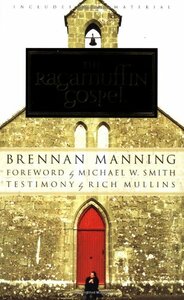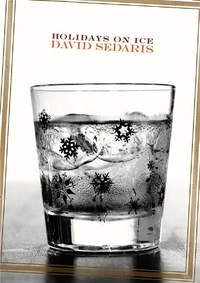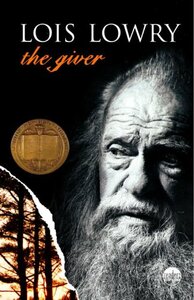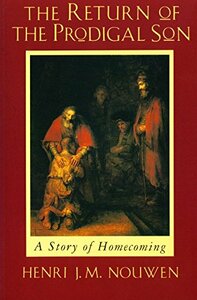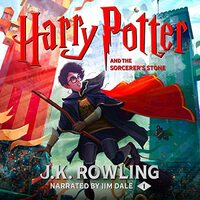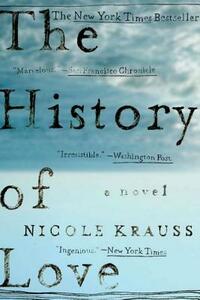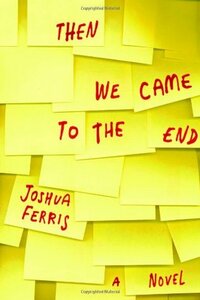Take a photo of a barcode or cover
jonscott9's Reviews (211)
Here Miller again mines the 21st-century realm of Christian spirituality. His "lifeboat" analogy is engaging (you'd have to read it) but carries this book only so far. Still, it's a decent follow-up to Blue Like Jazz. Readable and thoughtful. He just stays too open-ended for my liking, touches on things or mentions them in passing, never to lay into them. Give me Chesterton or Lewis or Yancey.
Manning is a recovered alcoholic-turned-priest. The thoughts pressed into this book are literate, wise, and gentle. He is principled but not pushy. It really deserves a read. This, coupled with Yancey's What's So Amazing? book, helped me form a concept of grace for my life and the lives of those around me. I cherish it for that.
Probably the perfect little jam to get you through the holiday season with those loved ones. The opening essay "SantaLand Diaries" is blisteringly funny (I laughed out loud a few times) and tells of the author's run as a Macy's elf. Later, the mock family Christmas letter "Seasons Greetings To Our Friends and Family!!!" elicits guffaws with its dark suburban humor. The third story that I really liked of the six is "Front Row Center with Thaddeus Bristol," told from the perspective of a theater reviewer who opts to lacerate some children's Christmas shows. Well worth the quick read. I chuckled and chortled from start to finish.
In a perfect, not-so-futuristic world, there is no pain. But is that world so perfect? There are also no emotions, no colors, and no love. No choices. Pubescent children pop pills to combat "stirrings." Adults are assigned compatible spouses, and children who becomes Twelves (years old) are assigned duties for the rest of their adult lives by the Elders. (Age is meaningless after 12.)
Jonas is appointed the next Receiver of Memories at his ceremony of Twelves. (I'm not ruining it; there was no doubt and it's on the back cover.) His predecessor begins to transmit scenes and feelings to his mind that flow with colors and warmth and very real joy and pain. But what to do with all this? Jonas has an important decision to make.
Lowry's book, which apparently everyone else read in middle school, was refreshingly simple to me at age 25. She tells a good story, one that makes you glad for the pains and difficult choices in life as they come hand in hand with all the happiness and goodness. For without deep sorrows, would we really have a concept of unbridled joy?
These 180 quick pages have a pleasing cadence to them.
Jonas is appointed the next Receiver of Memories at his ceremony of Twelves. (I'm not ruining it; there was no doubt and it's on the back cover.) His predecessor begins to transmit scenes and feelings to his mind that flow with colors and warmth and very real joy and pain. But what to do with all this? Jonas has an important decision to make.
Lowry's book, which apparently everyone else read in middle school, was refreshingly simple to me at age 25. She tells a good story, one that makes you glad for the pains and difficult choices in life as they come hand in hand with all the happiness and goodness. For without deep sorrows, would we really have a concept of unbridled joy?
These 180 quick pages have a pleasing cadence to them.
This was my introduction to Nouwen. I'd never have guessed that an Ivy League prof would write (or maybe even could write) such unadorned prose.
Nouwen witnessed the titular Rembrandt painting at a museum in St. Petersburg, Russia, and was transfixed by it. In this tome, he looks at the biblical story that provides the scene depicted, but he does it from the perspectives of all three central players: the prodigal son, his "Where's mine?"-crying brother, and the father. Each is treated to his own chapter, Nouwen going behind the eyes and then relating their takes on the situation to goings-on in his own life. He finds that, for better and worse, we resemble each of these men at different times in our lives.
His writing is warm and endearing. Can I say that it felt like this book was hugging me? It did. Nouwen leaves the rigorous theologizing to others, or to others books, and goes for the heart. He doesn't discount the head, though.
He is convincing when sharing of his respite at the L'Arch community for disabled people in Toronto, where he stayed until his death. In those sections he tells of how the mentally and physically handicapped there were prone to envelope him in physical affection, in effect hugging and loving the life back into him. Believe it.
(I look forward to reading The Wounded Healer next from him. In it he posits that "The only true healer is a wounded healer" when it comes to the fires of this life.)
Nouwen witnessed the titular Rembrandt painting at a museum in St. Petersburg, Russia, and was transfixed by it. In this tome, he looks at the biblical story that provides the scene depicted, but he does it from the perspectives of all three central players: the prodigal son, his "Where's mine?"-crying brother, and the father. Each is treated to his own chapter, Nouwen going behind the eyes and then relating their takes on the situation to goings-on in his own life. He finds that, for better and worse, we resemble each of these men at different times in our lives.
His writing is warm and endearing. Can I say that it felt like this book was hugging me? It did. Nouwen leaves the rigorous theologizing to others, or to others books, and goes for the heart. He doesn't discount the head, though.
He is convincing when sharing of his respite at the L'Arch community for disabled people in Toronto, where he stayed until his death. In those sections he tells of how the mentally and physically handicapped there were prone to envelope him in physical affection, in effect hugging and loving the life back into him. Believe it.
(I look forward to reading The Wounded Healer next from him. In it he posits that "The only true healer is a wounded healer" when it comes to the fires of this life.)
For the longest time, I staved off a reading of the Harry Potter books because it felt that poring over his life and spells would be akin to cheating on Narnia. My Narnia, the one fashioned in my mind when young, those chronicles that had me then and still have me today.
But with the advent of the denouement in Harry's tales, Book 7, I caved. The anticipation's building for the last chapter of L'Affair de Potter, and curiously, so is a very real tension. These books get darker as they go, I'm told. (Call me eager.) And I will not have any book or book series ruined for me before I get to it. Hence, I'm looking to slam these reads leading up to the finish.
Okay, on to HP and his Sorcerer's Stone now: A fitting opener to a sprawling series, I suppose, inviting while not engrossing. Felt teased a lot of times. Also felt it a chore sometimes to keep so many characters straight in my head.
The titular subject (that Stone) doesn't even come up until at least two-thirds of the way through the book, but once it does, Rowling really steps on the pedal. Those last 100 pages are a blitzread. I found myself caring about the fates of Harry, Hermione, and Ron Weasley.
Looking forward to how Rowling's writing grows over the course of these books. It only can, and if the mass fuss about the stories is to be believed. This book was good, or good enough, but not great.
Round 2: The Chamber of Secrets. Go!
But with the advent of the denouement in Harry's tales, Book 7, I caved. The anticipation's building for the last chapter of L'Affair de Potter, and curiously, so is a very real tension. These books get darker as they go, I'm told. (Call me eager.) And I will not have any book or book series ruined for me before I get to it. Hence, I'm looking to slam these reads leading up to the finish.
Okay, on to HP and his Sorcerer's Stone now: A fitting opener to a sprawling series, I suppose, inviting while not engrossing. Felt teased a lot of times. Also felt it a chore sometimes to keep so many characters straight in my head.
The titular subject (that Stone) doesn't even come up until at least two-thirds of the way through the book, but once it does, Rowling really steps on the pedal. Those last 100 pages are a blitzread. I found myself caring about the fates of Harry, Hermione, and Ron Weasley.
Looking forward to how Rowling's writing grows over the course of these books. It only can, and if the mass fuss about the stories is to be believed. This book was good, or good enough, but not great.
Round 2: The Chamber of Secrets. Go!
This book contains a book within it, and that is called The History of Love. Morsels "excerpted" from that book left me wishing it was a fleshed-out read itself.
The book is unconventional, its formatting fresh in the last 20 pages. (You'd have to read it.) The story transcends eras and ages, much like love itself. This is just a kaleidoscope of words.
It's a gorgeous book, its language alternately lilting and spare. Leo Gursky and Alma Singer are fully realized characters, ones who I wish were real so that I could know them.
(Sidenote: Much has been made of Krauss's marriage to Jonathan Safran Foer, the twentysomething wunderkind behind Everything Is Illuminated and Extremely Loud And Incredibly Close. The literati speculate that he had a hand in this book, and while I find that more believable than the idea that Capote had a hand in Harper Lee's Mockingbird, this is certainly Nicole Krauss's story.)
The book is unconventional, its formatting fresh in the last 20 pages. (You'd have to read it.) The story transcends eras and ages, much like love itself. This is just a kaleidoscope of words.
It's a gorgeous book, its language alternately lilting and spare. Leo Gursky and Alma Singer are fully realized characters, ones who I wish were real so that I could know them.
(Sidenote: Much has been made of Krauss's marriage to Jonathan Safran Foer, the twentysomething wunderkind behind Everything Is Illuminated and Extremely Loud And Incredibly Close. The literati speculate that he had a hand in this book, and while I find that more believable than the idea that Capote had a hand in Harper Lee's Mockingbird, this is certainly Nicole Krauss's story.)
This is Santiago's story. He's an aged Cuban fisherman who once paired with a helpful boy in his skiff but has gone fishless for 80-odd days straight. He goes way out on the waters early one morning and subsequently finds himself in the fight of his life to bring in a wondrous marlin.
This is a compact, crafty read for anyone who can't break away from all the mysteries of the sea. Hemingway knows better than most how to inject meaning into the seemingly quaint parts of life, or rather reveal the meaning embedded in our quaint days. He provides more insights in 120 pages than a whole lot of authors do in 400 or more.
It doesn't hurt either that this book came in the twilight of his writing career -- after Farewell To Arms and The Bell Tolls, after receiving the Nobel Prize in literature in 1954, after all the fanfare. This book is Hemingway's final act of greatness. It is fierce and tranquil, the story of a man who goes out every day to lose and find himself at sea.
At day's end, what does a man have to show for himself and his work? And near the end of his life? What is worth more, the fight or the trophy? These are just some of the questions seething below the surface in this short tome.
This is a compact, crafty read for anyone who can't break away from all the mysteries of the sea. Hemingway knows better than most how to inject meaning into the seemingly quaint parts of life, or rather reveal the meaning embedded in our quaint days. He provides more insights in 120 pages than a whole lot of authors do in 400 or more.
It doesn't hurt either that this book came in the twilight of his writing career -- after Farewell To Arms and The Bell Tolls, after receiving the Nobel Prize in literature in 1954, after all the fanfare. This book is Hemingway's final act of greatness. It is fierce and tranquil, the story of a man who goes out every day to lose and find himself at sea.
At day's end, what does a man have to show for himself and his work? And near the end of his life? What is worth more, the fight or the trophy? These are just some of the questions seething below the surface in this short tome.
"I was never supposed to be a jock."
It's quite possibly that James Blake isn't even supposed to be walking still. But he is -- and he's writing -- and we're all the richer for it.
Now here is an unusual sports autobiography. Precious little attention is given to the sport on the court and in his head. Life and adversity take center stage instead.
And there's no shortage of those things herein: During his 2004 pro tennis season, Blake suffered a broken neck in a freak on-court accident, recovered from that and spent his father's final days with him before Thomas Blake Sr. succumbed to cancer, and then contracted the rare case of zoster (shingles) afflicting a twentysomething due to the stress.
This engaging account (with a co-scribe's help) is long on life and short on pretension. Superfans of the sport and player and non-fans of tennis and sweat altogether will learn from this book. Think Tuesdays With Morrie maybe for the sports set, only this one seems even more genuine.
Blake pulls no punches here. Literary references are peppered in and always make good sense. The man did go to Harvard for two years, and he grew up with "school parents" (as opposed to "sports parents") who gave him $25 for every 100 books he read as a child. This is certainly a story worth telling from a man who took two years at Harvard and learned much more from his father and his obstacles.
This book deserved to land right where it did, at the No. 22 spot on the NYTimes bestseller list.
It's quite possibly that James Blake isn't even supposed to be walking still. But he is -- and he's writing -- and we're all the richer for it.
Now here is an unusual sports autobiography. Precious little attention is given to the sport on the court and in his head. Life and adversity take center stage instead.
And there's no shortage of those things herein: During his 2004 pro tennis season, Blake suffered a broken neck in a freak on-court accident, recovered from that and spent his father's final days with him before Thomas Blake Sr. succumbed to cancer, and then contracted the rare case of zoster (shingles) afflicting a twentysomething due to the stress.
This engaging account (with a co-scribe's help) is long on life and short on pretension. Superfans of the sport and player and non-fans of tennis and sweat altogether will learn from this book. Think Tuesdays With Morrie maybe for the sports set, only this one seems even more genuine.
Blake pulls no punches here. Literary references are peppered in and always make good sense. The man did go to Harvard for two years, and he grew up with "school parents" (as opposed to "sports parents") who gave him $25 for every 100 books he read as a child. This is certainly a story worth telling from a man who took two years at Harvard and learned much more from his father and his obstacles.
This book deserved to land right where it did, at the No. 22 spot on the NYTimes bestseller list.
Not usually one for bandwagon books in the year they come out or get latched onto, but this was different. Think (as one only can) of the movie "Office Space" or "The Office" on NBC television, but with a heart and soul.
The sad, silly, sordid affairs at an unnamed fictional ad agency in Chicago will have you wondering who at your own office or in your own life is repped here by the well-drawn fleet of characters.
The action (and there IS some action) rarely leaves the actual confines of this struggling Alamo of ads. (Characters are constantly "walking Spanish down the hall," a.k.a. being laid off.) Everything that happens is plausible and believable. It's alternately heartbreaking and hilarious, often at the same time, as when one man whose life revolved around his job sneaks in after being fired to take apart his work chair piece by piece, box it up, and hurl it into Lake Michigan.
This is Ferris's first novel, and the collective "we" voice he gives the narrator(s) is smart and fresh. Anyone who's been part of a work "team," or ever had a "workstation" (cube!) to call his own, or ever engaged in or overheard the gossip in the hallway -- he will love this book.
A fair portion of the dialogue comes in diatribes sent between characters over e-mail. This is another brilliant move on Ferris's part. You wince along with the sender of an e-mail when he accidentally hits "reply all" at the worst time. You also begin to care -- really care -- for a few people as their faults and cruelty and vulnerability come through. When you get to the end, it's all been worth it.
The sad, silly, sordid affairs at an unnamed fictional ad agency in Chicago will have you wondering who at your own office or in your own life is repped here by the well-drawn fleet of characters.
The action (and there IS some action) rarely leaves the actual confines of this struggling Alamo of ads. (Characters are constantly "walking Spanish down the hall," a.k.a. being laid off.) Everything that happens is plausible and believable. It's alternately heartbreaking and hilarious, often at the same time, as when one man whose life revolved around his job sneaks in after being fired to take apart his work chair piece by piece, box it up, and hurl it into Lake Michigan.
This is Ferris's first novel, and the collective "we" voice he gives the narrator(s) is smart and fresh. Anyone who's been part of a work "team," or ever had a "workstation" (cube!) to call his own, or ever engaged in or overheard the gossip in the hallway -- he will love this book.
A fair portion of the dialogue comes in diatribes sent between characters over e-mail. This is another brilliant move on Ferris's part. You wince along with the sender of an e-mail when he accidentally hits "reply all" at the worst time. You also begin to care -- really care -- for a few people as their faults and cruelty and vulnerability come through. When you get to the end, it's all been worth it.

